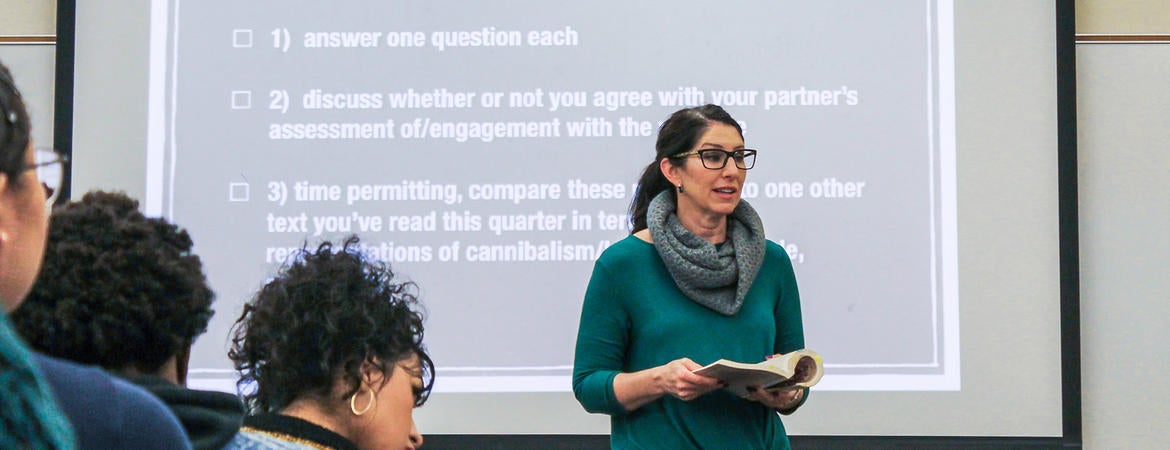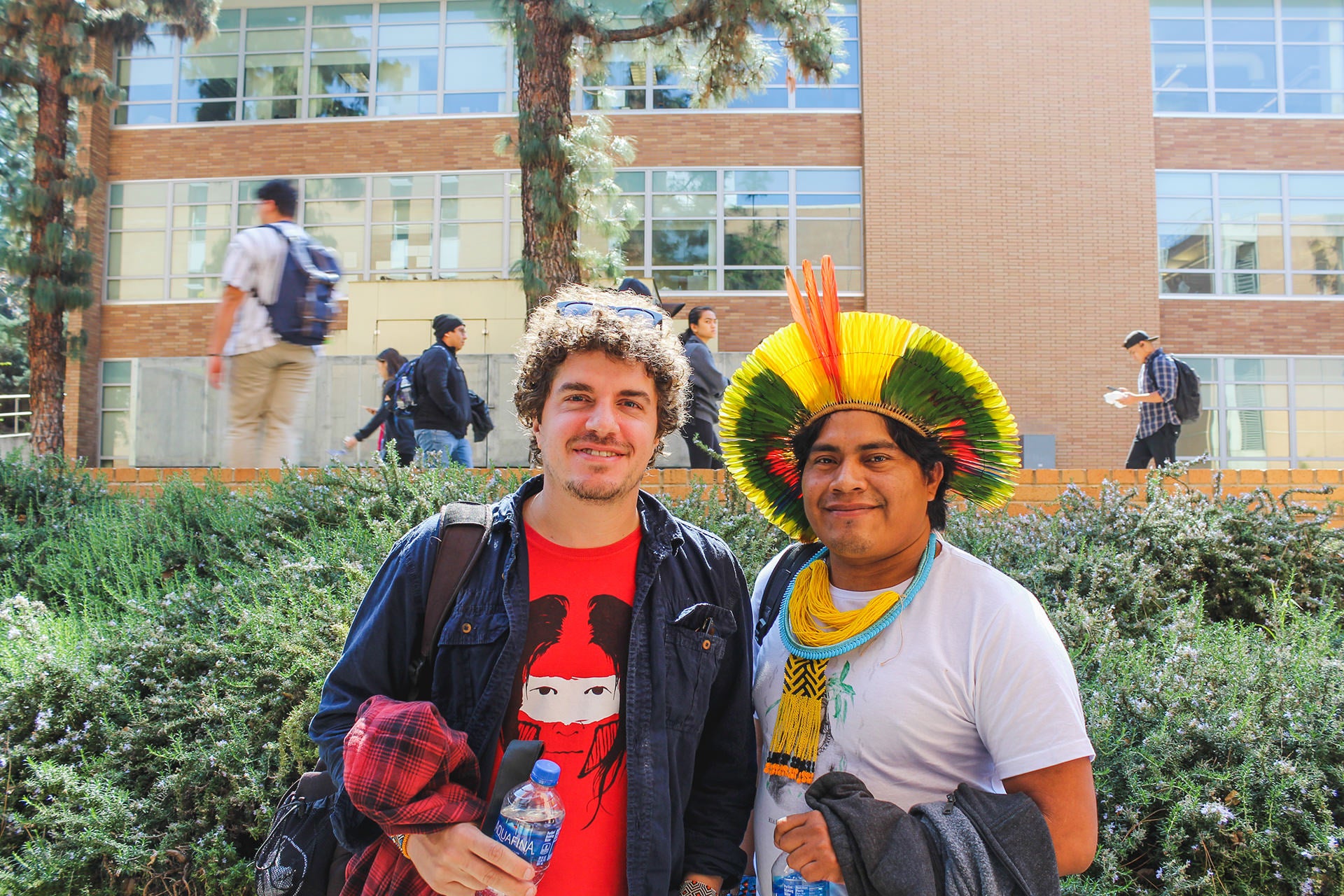College of Humanities, Arts, and Social Sciences

Cannibalism is a hard topic to write about positively. But to UC Riverside English Professor Michelle Raheja, cannibalism encompasses more than just negative images.
“The class I teach on cannibalism, English 130, is a kind of prehistory to studies of American literature,” Raheja said. “It’s really a class that plays around with what a historical period is, and what a literary genre is. The course traces out a genealogy of thinking about what constitutes cannibalism and what constitutes cannibal evidence or representation from Indigenous oral narrative, to the early modern period, to our contemporary moment.”
Raheja last taught English 130 during the fall quarter, 2018. It is not offered this year but she hopes to teach it again in the future. The upper division English class strives to broaden the conventional view of early American history, which traditionally begins in 1630 and ends in 1850, by connecting physical consumption of the human body to the ways in which colonization has consumed and committed violence against Indigenous and oppressed peoples, as well as to the ways in which Indigenous writers and artists employ cannibalism as a trope to understand customary practices and settler colonial texts and contexts.
“The theme is consumption and reproduction, dealing mostly with the Puritan era and coming into the Americas,” said Celeste Jackson, a second-year Ph.D. student. “It’s toying with this idea of what it looks like to see cannibalism as a metaphor for colonialism. It’s really important to see how wanting to take something entirely for oneself, for your own means and production, is damaging.”
The class also studies contemporary literary and popular culture representations of cannibal creatures such as vampires, werewolves and zombies, and how these characters draw from and rework the traditional “cannibalism” definition. Lectures cover critical thinking and both literal and figurative analysis, and touch on other topics including Indigenous nations, European settler colonial writers, film, visual culture, and poetry, public exhibitions such as the Body Worlds show, and even historical woodcuts. Some of the assignment options that develop critical thinking include a final research paper, ‘zines, graphic novellas, and podcasts.
“Critical thinking is the most important thing to me,” Raheja said. “I want students to look at things that are strange, things that are removed from them or have been translated, and to look at that material and have something to say about it. Also, to rethink how Indigenous people have been represented, and broader issues of settler colonial literature.”
“I hope that students are able to see things more creatively,” Jackson said.
The interdisciplinary class strives to teach students how to take ideas and concepts from different majors and apply them to the course, and frequently hosts guest speakers to discuss the effects of colonization and the influence of modern industrialization on traditional cultures. In the fall of 2018, Professor Raheja invited Bepkadjoiti Kayapó, a Mẽbêngôkre filmmaker from Brazil, and Simone Giovine, an Italian filmmaker living in Brazil, to discuss Indigenous filmmaking practices and their relationship to the consumption of new media in the Amazon. Students from all CHASS majors are encouraged to take the course as long as prerequisites are met, and students with English, History, Psychology, Ethnic Studies, and Sociology majors have all participated in the class.
“In terms of CHASS, I love the way that students are able to talk and open up and share their ideas,” Jackson said.
Though Raheja is not teaching the class in the 2019 academic year, she plans on continuing to teach the course in the future and encourages students to register for her other lectures.

Guest lecturers Bepkadjoiti Kayapó, right, a Mẽbêngôkre filmmaker from Brazil, and Simone Giovine, an Italian filmmaker living in Brazil.
FEATURED PHOTO. Hannah Croft/CHASS Marketing & Communications.
Professor Michelle Raheja teaches English 130 which explores cannibalism in early American history.